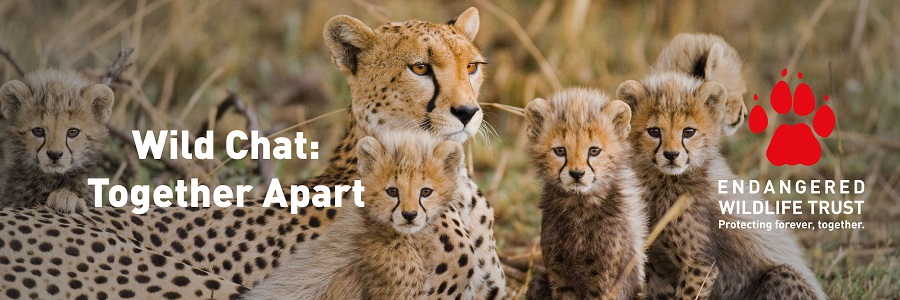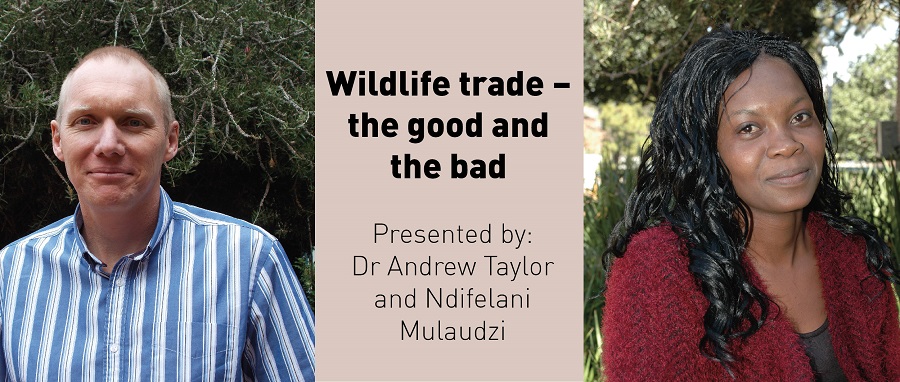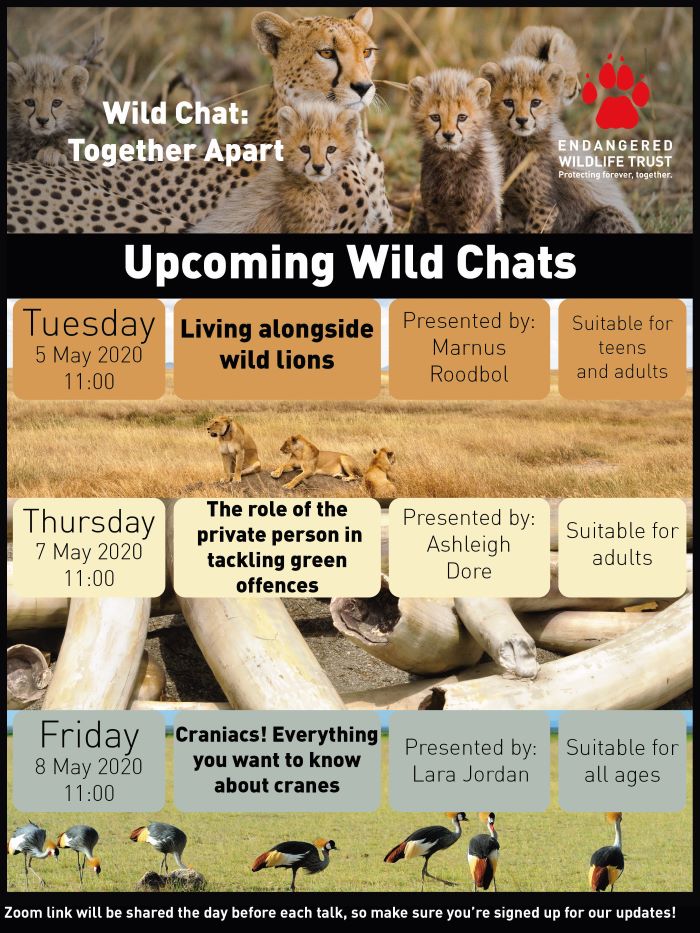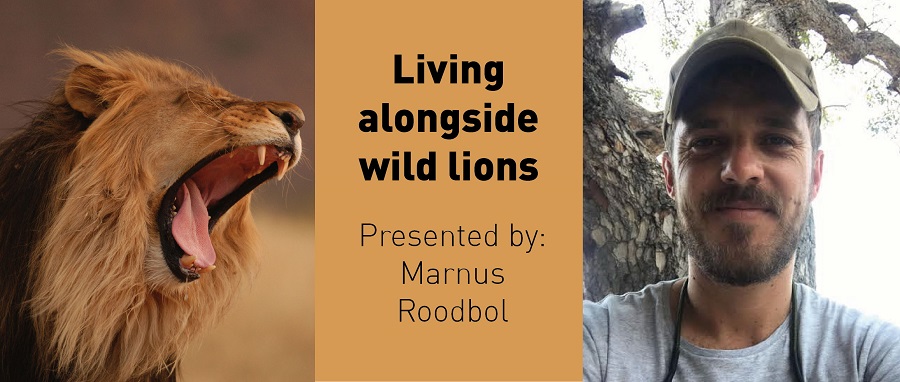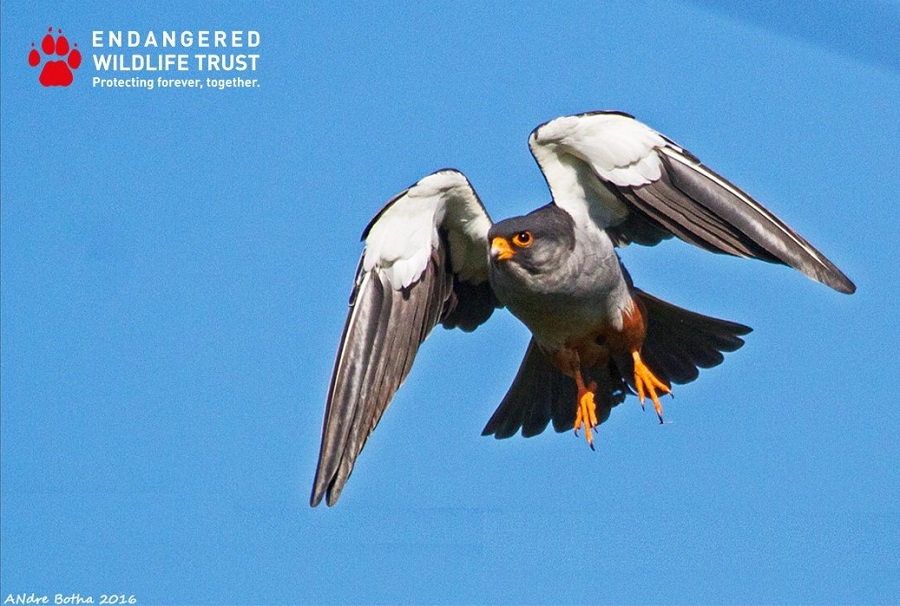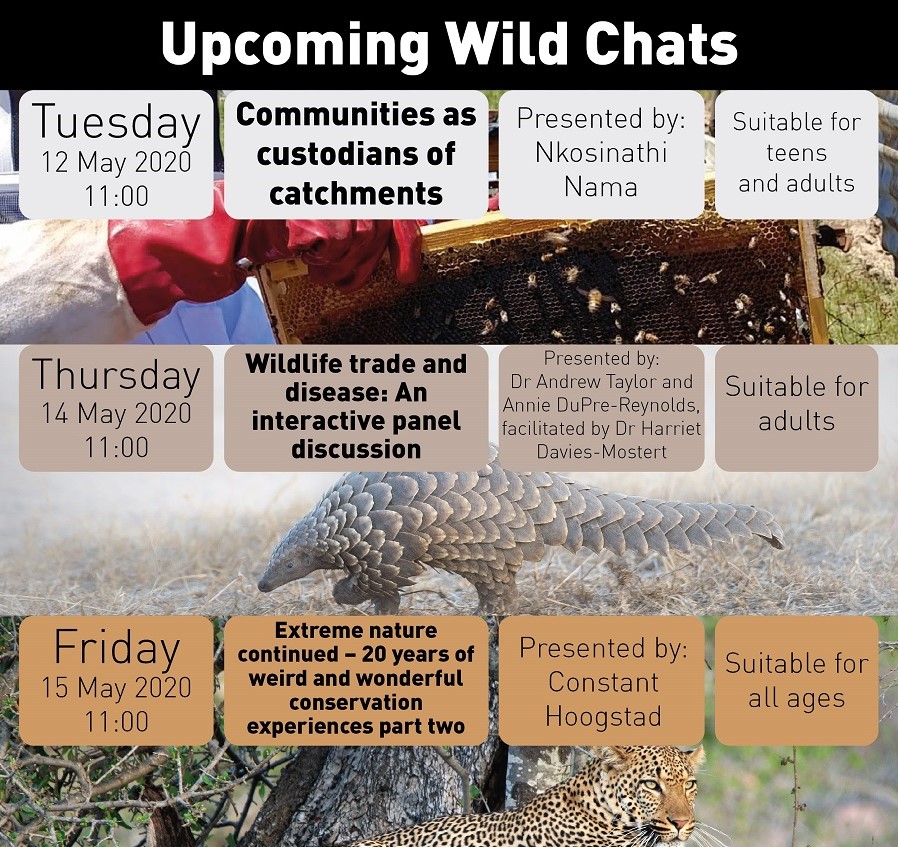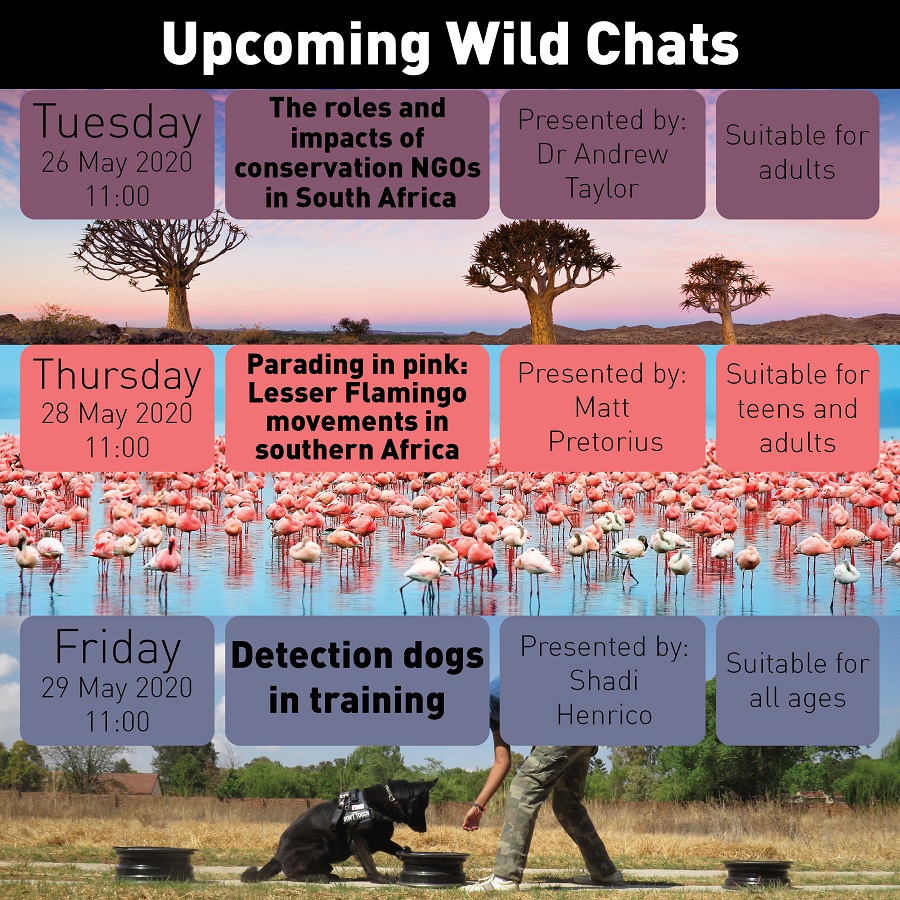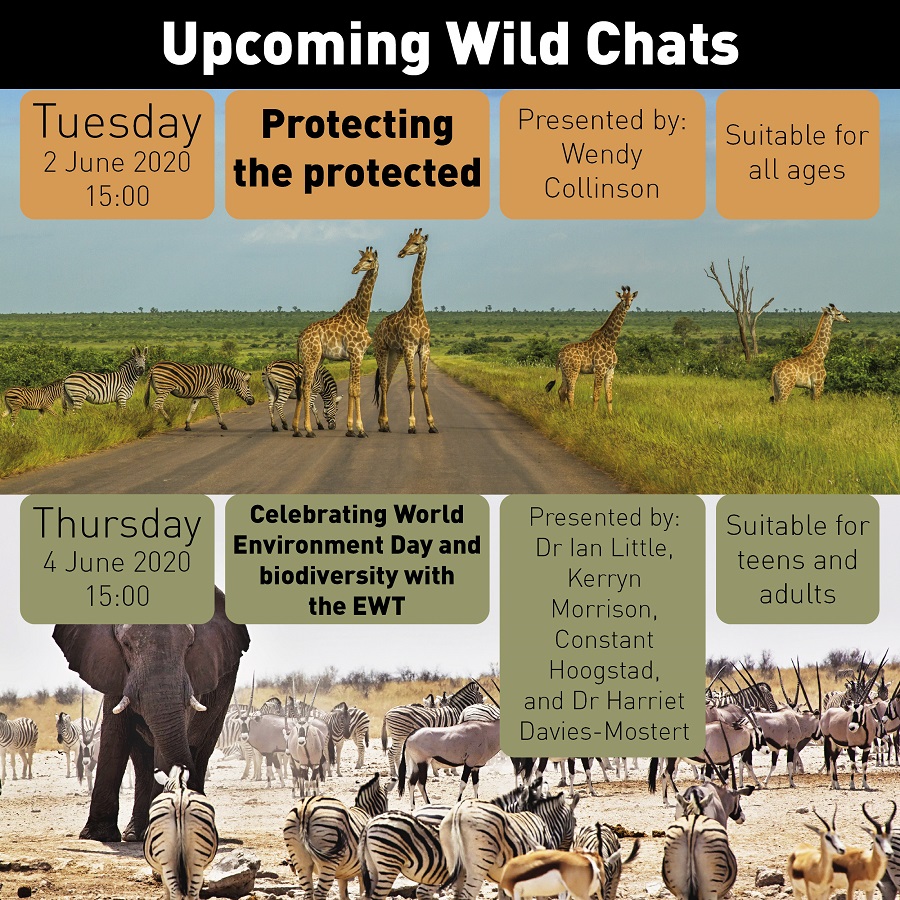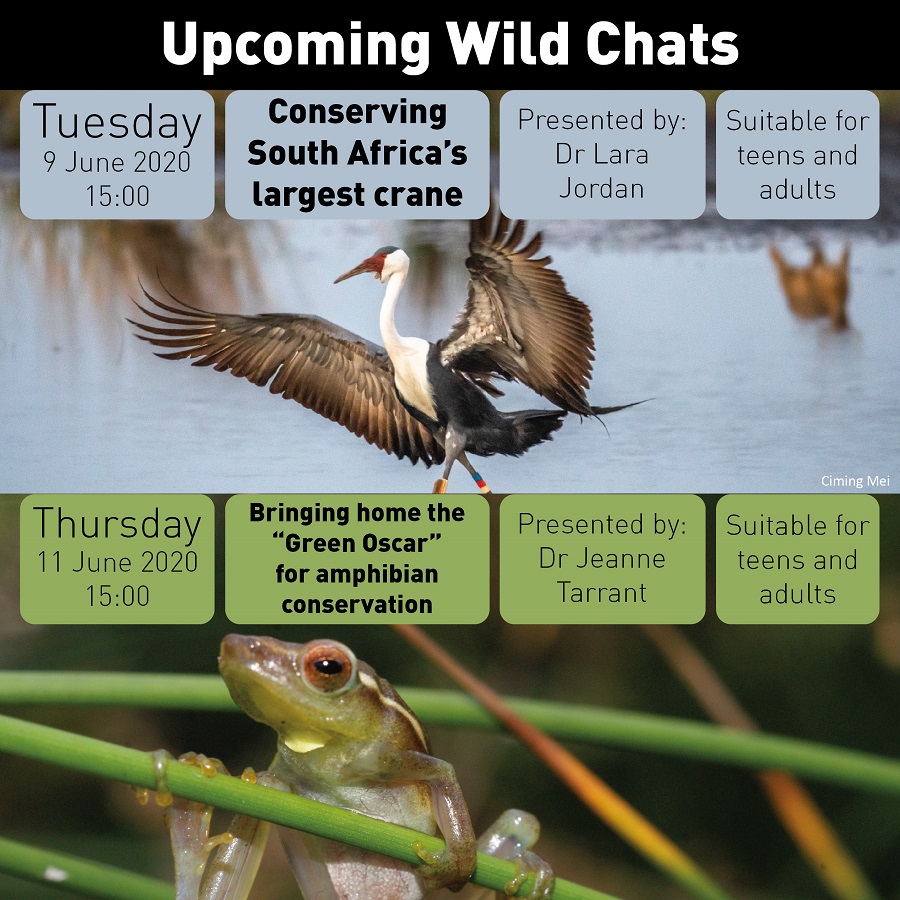Next week on Wild Chat!
Next week, we'll be bringing you three more exciting Wild Chats, which will each be approximately 20-30 minutes long, with time afterwards for questions and answers.
You can register for the chats of your choice, using the links below. Each Wild Chat is also recorded and shared on our YouTube channel and other social media platforms afterwards, meaning no one has to miss out!
So stay home, stay safe, and stay connected with our wild world.
If you would like to donate towards the critical conservation work being shared, please click here
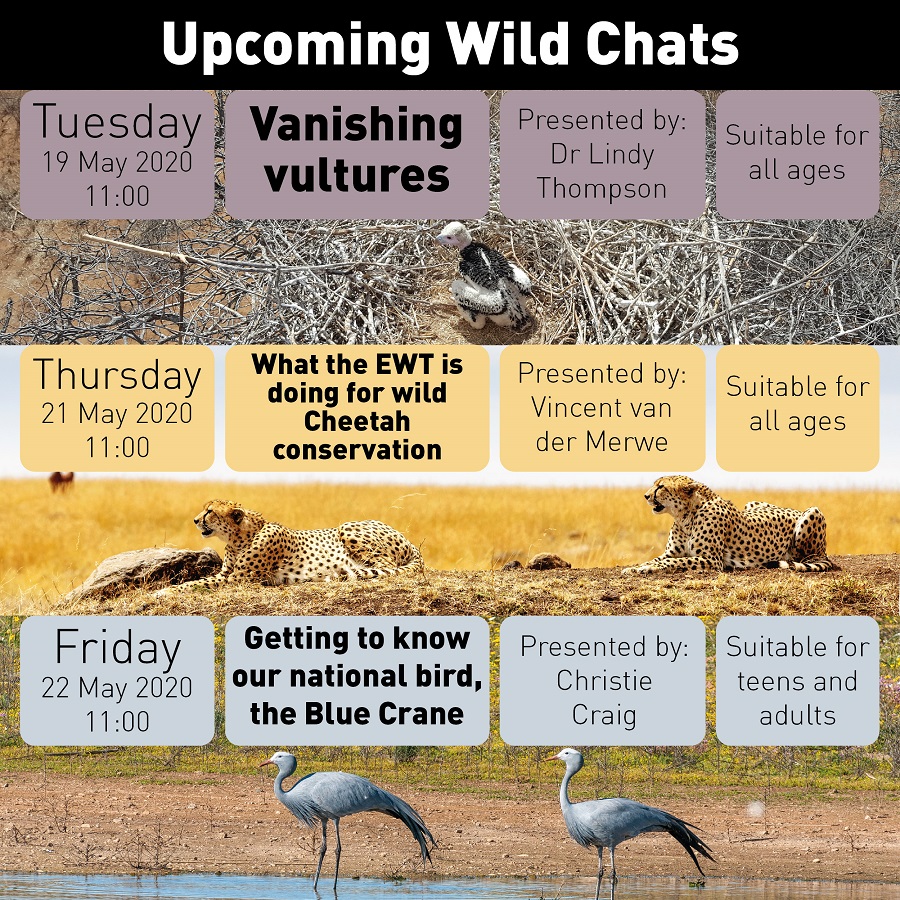 Register for 19 May: Vanishing vultures
Register for 19 May: Vanishing vultures
Join Dr Lindy Thompson, EWT Project Coordinator: Vulture Conservation and Research, for this fascinating Wild Chat, focused on African vultures.
Lindy will be sharing a few mind-blowing facts about vultures and chatting about why these iconic scavengers are so important. She’ll also ask the crucial question – why are vultures vanishing? If you’d like to find out what you can do to help vultures, be sure not to miss this Wild Chat. This talk is suitable for all ages.
Register for 21 May: What the EWT is doing for wild Cheetah conservation
Since 2011, Vincent van der Merwe has overseen the growth of the EWT’s Cheetah metapopulation project from 217 Cheetahs on 41 reserves to 385 individuals on 60 reserves. Join him for this insightful Wild Chat as he discusses the origins of this project and the establishment of the only growing wild Cheetah population worldwide.
He’ll also chat about the evolution of the Cheetah and how they fit into the cat family, as well as the global decline of wild Cheetah populations over the past 13,000 years. Over the course of the webinar, Vincent will introduce you to some of our more famous wild Cheetahs, expand on our plans for the future, and so much more. This talk is suitable for all ages.
Register for 22 May: Getting to know our national bird, the Blue Crane
Join Christie Craig for this wonderful Wild Chat, all about South Africa’s beautiful national bird, the Blue Crane. She’ll cover the basics, like breeding, roosting, and feeding, as well as some history of the population, looking at how and why it declined, and some of the interventions to turn this around.
Christie will also touch briefly on her PhD, and why research into Blue Cranes is so important. She’ll share fascinating insights into how Blue Cranes move, drawing information from ringing records and satellite trackers. This talk is suitable for teens and adults.
